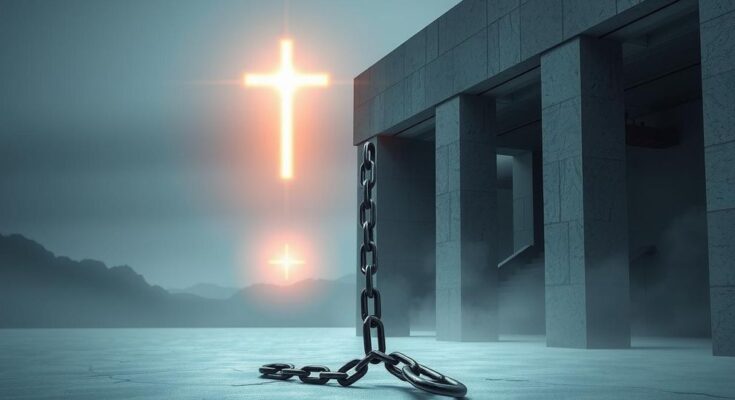In the shadowy confines of Penal Colony No. 9 in Belarus, Ales Bialiatski, the imprisoned Nobel laureate, stands as a testament to the grim realities faced by political prisoners. Marked by a yellow tag identifying him as a political dissident, he endures brutal treatment, denied essential medications and contact with his family as authorities classified him as an “extremist.”
During authoritarian President Alexander Lukashenko’s long rule, he consistently denied the existence of political prisoners, yet current estimates put the number near 1,300. These individuals, including Bialiatski, 62, who earned the Nobel Peace Prize in 2022 for his human rights efforts, suffer increasingly dire conditions, with his health notably declining during his imprisonment.
As Belarus prepares for a controversial January 26 presidential election, the spotlight on its human rights record intensifies, especially after the 2020 election sparked widespread protests and subsequent crackdowns on dissent. “Bialiatski’s fate underscores the catastrophe in the center of Europe that Lukashenko’s regime has plunged Belarus into,” noted opposition leader Sviatlana Tsikhanouskaya, highlighting the desperate plight of Belarusian political prisoners.
Despite some recent pardons of political prisoners by Lukashenko, many critics argue it’s merely a facade as new arrests continue unabated. Since 2020, approximately 65,000 individuals have faced arrest amid reports of beatings and torture within custody, with at least seven deaths attributed to harsh prison conditions. Bialiatski himself was arrested in 2021 during a brutal KGB raid.
Sentenced to ten years in prison in March 2023 on dubious charges, Bialiatski was labeled particularly dangerous by officials. His family remains frantic for news; his wife, Natalia Pinchuk, has been missing any contact since August and suspects her husband’s condition is grave.
Supporters of Bialiatski note that the harsh treatment he faces is directly linked to his work with Viasna, a prominent human rights group in Belarus. Viasna’s mission to document and assist victims of government oppression has drawn the ire of the state, resulting in the arrest of many group members.
From the depths of isolation, reports surface of Bialiatski’s deteriorating health and conditions akin to those of a concentration camp. Former inmate Ruslan Akostka recounted his experiences: “Bialiatski is very thin… it all looks like a concentration camp.”
Bialiatski’s legacy as a freedom advocate endured as he was awarded the Nobel Peace Prize during his detention, with his wife representing him during the Oslo ceremony. Yet, amidst international condemnation, his situation remains dire, serving as a warning bell about the reality of human rights in Belarus.
Calls for Bialiatski’s release echo globally, including from the likes of Oleg Orlov, whose own freedom came amid an East-West prisoner exchange. However, many other political prisoners continue to languish, hidden from view and denied the justice they seek.
Despite Western leaders advocating for his freedom, resistance from the Belarusian government remains steadfast. According to Viasna activists, efforts to pressure for Bialiatski’s release hit a wall as authorities insist on lifting sanctions as a price for any negotiations. His ongoing plight illustrates a broader failure of international voices to adequately address the depths of human rights violations in Belarus, signaling an urgent need for action.
Ales Bialiatski, a Nobel laureate imprisoned in Belarus, faces severe human rights abuses including denial of medical care and family contact. With 1,300 political prisoners in Belarus, conditions remain dire as Lukashenko’s government cracks down on dissent ahead of the January elections. Calls for his release are met with resistance, raising concerns over international efforts to address human rights violations.
Ales Bialiatski’s imprisonment symbolizes the human rights abuses pervasive in Belarus, marked by the government’s brutal crackdowns on dissenters. As the nation approaches a crucial presidential election, the plight of political prisoners remains dire, with Bialiatski’s health precariously failing under harsh conditions. His story reflects the urgent need for international intervention and an end to the merciless treatment of those who dare to stand against tyranny.
Original Source: www.winnipegfreepress.com



